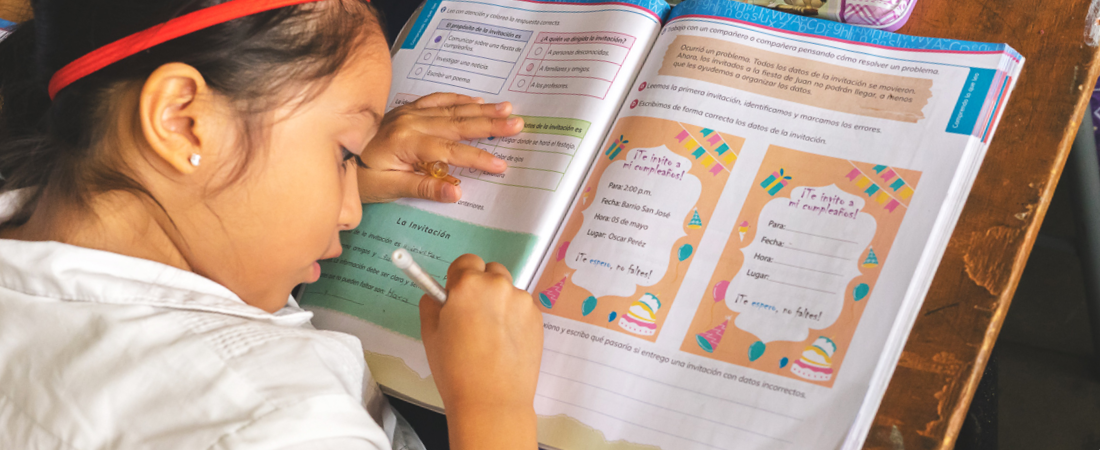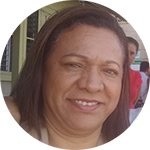Promoting Resilience and Recovery

As the community participation specialist for the USAID Honduras Reading Activity (HRA), Maritza Zelaya has a lot to do. In partnership with the country’s Ministry of Education (MOE), she develops and delivers trainings that help parents, caregivers, and community members appreciate the importance of reading to children at home. She also oversees the activity’s training of high school seniors who are completing their Trabajo Educativo Social (TES), a community service project that is a requirement for graduation.
Zelaya’s role only became more complex when the COVID-19 pandemic forced the closure of schools in Honduras. Hers has been a key voice in the design and implementation of “We Want You Studying,” the MOE’s nationwide campaign to promote enrollment and retention, particularly of out-of-school students. The campaign was adapted during the pandemic to encourage students and families to stay connected to the school community and to continue learning from home during school closures.
In this interview, Zelaya reflects on the impact of the pandemic on students and families in Honduras and how her work is promoting resilience and recovery.
Q. What were the shocks and stressors experienced by communities in Honduras before COVID-19?
Zelaya: Before the pandemic, families struggled the most with poverty, physical safety, and the lack of economic opportunities. Even with a high school degree, it was difficult to get a job.
Q. How has that changed since the pandemic?
Zelaya: Poverty continues to be the main challenge due to unemployment and the increase in the cost of basic goods. Many people have also become depressed, especially young people, due to the loss of loved ones to the disease and the lack of opportunities to continue studying. With schools closed, the main problem is the lack of connectivity. Many learners have dropped out of school for this reason.
Q. How do you see your role in building resilience and positive development in the community?
Zelaya: As a team promoting the engagement of parents, caregivers and community members, our role is to inspire hope and motivate students to continue studying. We are trying to protect their educational trajectories and avoid having them drop out of school. We must work with teachers, families, and students to motivate them to continue, despite the challenges that they are facing right now. We focus on promoting resilience and positive development through our efforts within families and communities.
Q. What types of activities are you and your team doing to strengthen community resilience in Honduras?
Zelaya: We distribute school kits containing school supplies so that the lack of resources doesn’t serve as an impediment to continuing to learn. The kits also contain facemasks and soap to support community health and wellness. In total, HRA has provided 320,000 school kits to students across Honduras. We have also printed and distributed learning materials for students in grades 1 through 6. Through Community Learning Centers, we are providing access to Internet connectivity and catch-up academic activities. And we have launched digital trainings for parent organizations to teach families how to support each other and how to keep their children motivated and learning, whether they are at school or learning at home.
Q. How are parents coping with the challenges posed by the pandemic?
Zelaya: At the national level, we held meetings starting in April 2020 to listen to Parents’ Associations and get a better sense of how they felt. We emphasized that it was OK to express their feelings and that we were there to support them. I remember participating in a meeting in Santa Bárbara, and I was very pleased with how confidently mothers and fathers expressed their feelings and their state of mind. It was satisfying to be able to encourage them and to congratulate them on the strength they demonstrated in their ongoing support to their children’s education.
Q. How is your work making a difference?
Zelaya: We want students and their families to feel that they are not alone, that we are supporting them. Everything we do is immersed in socio-emotional support. In this way, we are hoping to motivate families to continue persevering, even though times are difficult. Every meeting, every intervention, every training focuses on the positive and on looking forward.
